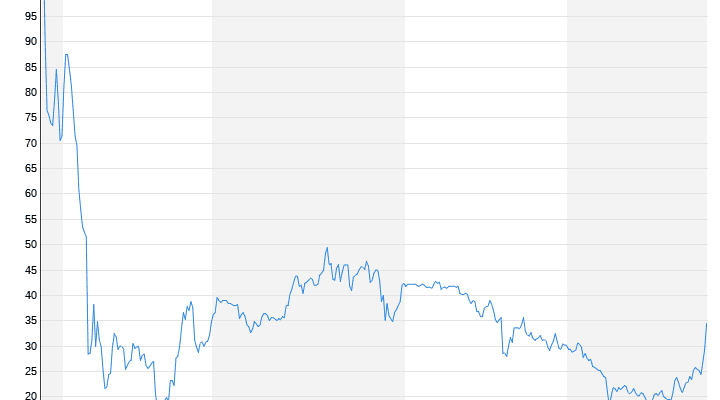Bank tremors strain nerves
US regional bank prices plummet
03/16/2023 5:02 p.m
In the USA, the situation at the regional banks continues to deteriorate. The shares of the First Republic Bank and other smaller institutions break double digits again. After the price drop at the beginning of the week, your market value is almost wiped out.
The fear of further bank failures after the collapse of the Silicon Valley Bank (SVB) continues to have a firm grip on the US stock exchanges. As in the entire banking sector, there are heavy price losses again when Wall Street starts trading; Regional banks are again particularly affected.
Above all, it hit the First Republic Bank titles again, which fell by a further 39 percent in US trading at the start of trading. The shares were temporarily suspended from trading. The US finance agency Bloomberg had previously reported that the troubled private US lender was examining “strategic options”, including a sale. The San Francisco-based regional bank has focused on wealthy private customers.
While distinctly different from SVB, which has been involved in startup funding, it has not escaped the downward spiral. First Republic Bank is also suffering from the withdrawal of customer deposits. Just last Sunday she had secured fresh capital from JP Morgan and the US Federal Reserve. Despite the cash injection totaling $70 billion, several rating agencies downgraded the stock. The rating agency Moody’s recently downgraded First Republic Bank and five other US credit institutions, as Bloomberg reports. Most recently, the share recovered slightly to minus 16 percent.
The stocks of PacWest Bancorp and Western Alliance Bancorporation also fell again on Thursday with minus 16 percent and minus 14.6 percent. All three titles had already lost a large part of their value earlier in the week.
A 50 basis point interest rate hike by the European Central Bank also weighed on sentiment in the financial sector in general. In view of the impending banking crisis, some investors had bet on a smaller increase. The head of the world’s largest asset manager Blackrock had warned of ongoing risks for the banking sector after the collapse of Silicon Valley Bank. The current financial situation is due to the “price of easy money,” Laurence Fink wrote in his annual letter to company bosses and investors.
He expects that the US Federal Reserve will continue to raise the key interest rate even after the previous rate hikes. After the crisis of the regional banks in the USA, the financial industry will have to deal more with the so-called liquidity mismatch, wrote Fink. The low interest rates caused some institutes to look for more profitable investments, which, however, could not simply be sold.
In the past few weeks, a total of three US banks have gone bust: crypto bank Silvergate Capital, Silicon Valley Bank (SVB) and New York-based Signature Bank, which also operates a large crypto business. This caused significant turbulence in the markets. US President Joe Biden tried to reassure investors and bank customers: “Americans can trust that the banking system is secure. Your money will be there when you need it,” said Biden in a speech on Monday.
The American Federal Reserve launched a loan program for the most recent problems among American regional banks, which market participants initially compared with a guarantee of existence. But the shock waves from the SVB and above all from Credit Suisse continue to unsettle the investors and customers of these institutions.
The US banking and stock market quake reached the European continent on Wednesday. Credit Suisse stocks have lost more than 30 percent at times. The news that the Swiss National Bank (SNB) is providing financial support to the ailing Credit Suisse has meanwhile calmed the nerves of many investors. However, not completely: the share has recently fallen back towards CHF 2.0.
